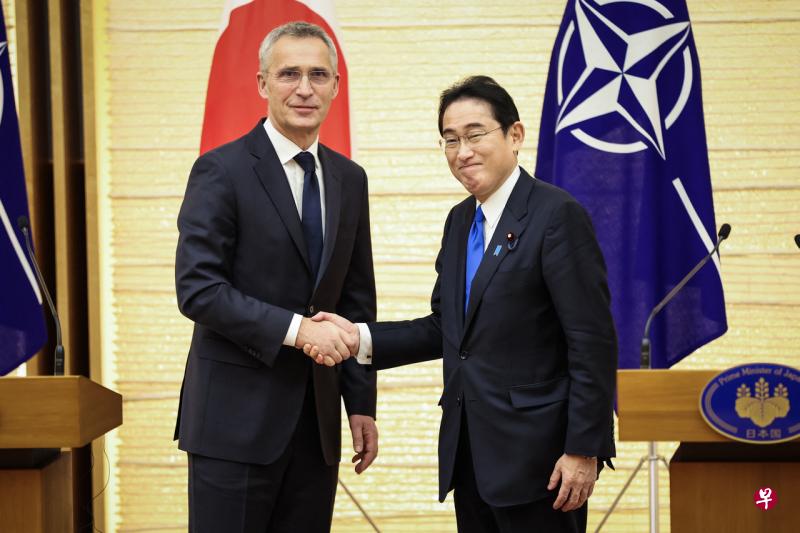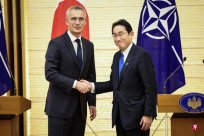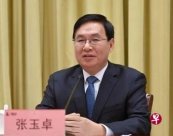
Guo Yuren, director of the Japanese Research Center of Taiwan Sun Yat -sen University, analyzed in an interview with Lianhe Zaobao that the talks between Kishida Wenxiong and Stoltenberg intended to convey "safe confrontation and confrontation with BeijingIt does not mean that strategic confrontation, but trying to change the status quo with force, the cost is by no means to bear it. "
The Japanese Prime Minister Kishida and the Secretary -General of the North Atlantic Convention Organization Stoltenberg jointly promised to strengthen cooperation on Tuesday (January 31); Beijing responded the next day, requiring the relevant party to render "Chinathreaten".Scholars analyze that the talks between the two sides intended to scare China's force to change the status quo; and before the progress of Sino -US relations, Beijing was not in a hurry to deal with Sino -Japanese relations.
Stoltenberg issued a joint statement after the Japanese Prime Minister's residence and Kishida Wenxiong on Tuesday, stating that Russia invaded Ukraine, China and Russia's increasing military cooperation, and North Korea's development of nuclear weapons.The most intense security environment since the World War.NATO and Japan are worried about this.
Statement pointed out that Japan will strengthen cooperation with NATO in the fields of maritime security, weapon control, network space and other fields to cope with the changing strategic environment.The statement also emphasizes the importance of peace and stability in the Taiwan Strait.
Comprehensive Reuters and Bloomberg reported that the Stoltenberg meeting later pointed out at a press conference that mainland China is significantly enhanced the military power including nuclear weapons, threatened Taiwan, attempts to control important infrastructure, and for NATO and the NATO and the NATO andThe Russian and Ukraine War spread fake news.
He said: "China is not our enemy, but it is necessary to understand how big the topics in China are. NATO must strengthen cooperation with Japan."
For this joint statement, Chinese Ministry of Foreign Affairs spokesman Mao Ning responded on Wednesday (February 1) that China has always been a peacekeeper in the world and region.confrontation.
Guo Yuren, director of the Japanese Research Center of Sun Yat -sen University in Taiwan, analyzed in an interview with Lianhe Morning Post that the talks between Kishida Wenxiong and Stoltenberg intend to convey to Beijing that "the security confrontation does not mean strategic confrontation, but trying to use force with forceChanging the status quo is by no means that China can bear it. "
In addition, the Kishida government passed three defense documents in December last year. It is estimated that by 2027, national defense funds will reach 2 % of GDP (GDP) to align with NATO member states.Stoltenberg expressed his high affirmation on Tuesday.
Japan will set up an independent representative office to handle with NATO affairs
Kishida Wenxiong said at a press conference that as part of the efforts of deepening relationships, Japan will set up an independent representative office to handle affairs with NATO and consider regularly participating in high -level meetings held by NATO.
In an interview with the Lord of the Japan and East Asian Research Center of Fujin University in Taiwan, in an interview that Japan's increasing national defense funding means that the United States -Japan -based U.S. security cooperation has changed in the past.More actively seeking cooperation with multilateral organizations such as NATO, which is also the United States.
In addition to cooperating with NATO, Japan has recently reached an agreement with the United States and the Netherlands to restrict the manufacturing equipment for advanced chips (Chinese chips) exported to China.According to Reuters, Don Graves, Deputy Minister of Commerce, acknowledged the agreement on Tuesday, but said it could not be discussed.
For the direction of Sino -Japanese relations, He Sichen believes that the top priority of Beijing is to create an external environment that is favorable for economic development. Therefore, Improve Sino -Japanese relations.Therefore, at this stage, Japan is bound to be more inclined to the American camp.
As for Japan's frequent concern about the safety of the Taiwan Strait, He Sishen believes that under the three major causes of the United States and Japan, Sino -US relations, and Sino -Japanese relations, it may be difficult for JapanExconsuiety.
Guo Yuren said that the United States and Japan began to discuss the revision of the US -Japan defense cooperation pointer since 2021. The timing delayed due to the Russian and Ukraine War.It will also be visited Japan, and it is likely to sign this revised version of the document at that time, which is likely to be included in the relevant content of "the Taiwan Strait".



